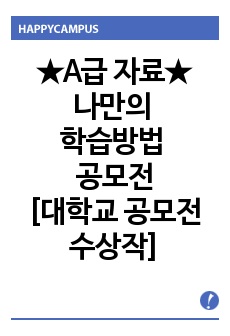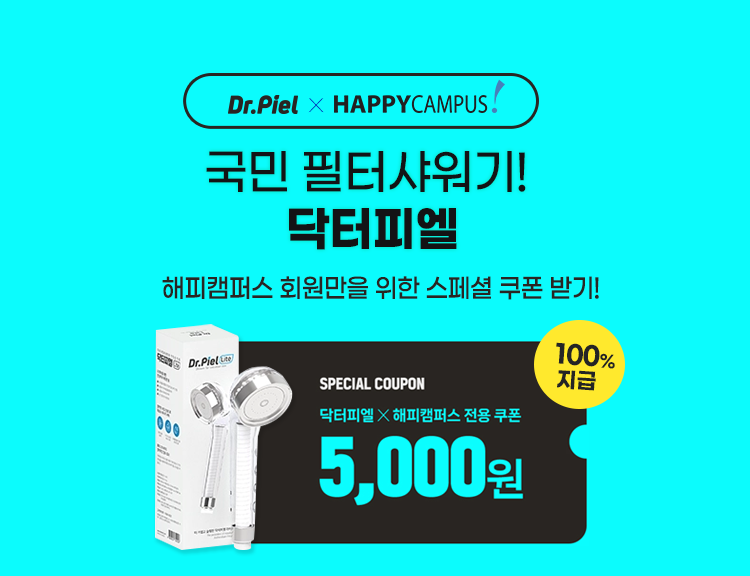A STUDY OF HEALTH AND WELLNESS MARKETING OF SUPERMARKETS IN JAPAN
* 본 문서는 배포용으로 복사 및 편집이 불가합니다.
서지정보
ㆍ발행기관 : 글로벌지식마케팅경영학회(GFMC)
ㆍ수록지정보 : Global Marketing Conference
ㆍ저자명 : Shinya Nakami
ㆍ저자명 : Shinya Nakami
영어 초록
The thesis of this study is that, “Health and Wellness”should be prioritized to enhance the store loyalty in Japanese Supermarkets. In order to prioritize, one must understand where the“Health and Wellness”is in the study of Supermarket marketing. As of current situation in Japan, facing two major critical issues, Aging society in advanced culture, and the 3.11 natural disaster linking with the nuclear issues, following hypothesis is made,“Health and Wellness”plays the sensitive and strong role in“Quality”Factor, which reflects store loyalty directly along with the other three; Service, Assortment, and Price of the Quantitative research to Yaoko supermarket customers (see Figure 1). In conclusion, the research question of this study is that, would“Health and Wellness”eventually become an independent 5th key factors constructed store loyalty in the future? The existing study in this study is summarized into two directions;“CSV, Marketing 3.0, and Co-Created Value”and“Store Loyalty”. First, CSV reported by Porter & Kramer (2011) aims to be compatible, both in social and economic values. On the other note, CSR aims to only create a social value. And Marketing 3.0 reported by Kotler, Kartajaya, & Setiawan (2010) is Value-driven marketing similar to CSV. The key concept is focused on the importance of Cooperate Mission, Vision, Value and Co-Creation with consumers and regional community. Precisely, the Marketing 3.0 is related with the concept of Co-Created value (Prahalad & Ramaswamy, 2000; Vargo & Lusch, 2004). In summary, such question may rise; why does a company focus to the idea of CSV, Marketing3.0 nowadays? It is obvious to state, a company suffers from the pressure created by commodity phenomenon of goods and services. Therefore, in order to face such pressure, a company aims to upgrade from the functional value to the ideated value or social value. And this is the basic idea of Marketing 3.0. Next, consumers are very sensitive to social goods and values when they purchase the goods and services more than ever before. Therefore, a company faces to build up not only the economic value but also the social value; which is the basic idea of CSV. In short, both a company and consumers are focused now to the concept of the sustainability as “Health and Wellness” in Japan, where the basic qualities are already covered and are way below the considerable point. With this, essentially, the sustainability is the CSV and Marketing 3.0. Secondly, the research framework of Store loyalty in this study is based on the existing study of Baker, Parasuraman, Grewel, & Voss (2002). And based on Baker’s Store Loyalty Model, this study reflects quantitative research result to Yaoko supermarket customers. The result is that, Store Loyalty to supermarkets of“Co-Created Value” type in Japan is constituted to both “service” (e.g., Emotional satisfaction from shopping, Comforts created by the store atmosphere, and Proposal ability by the employees) and “Quality” for “fresh”foods (e.g., Freshness, Safety). This existing study indicates that, the retailing needs “Customer Perspective” and “Co-Created Value Perspective” in order to earn the store loyalty image within the category of “Service” and “Quality”. The Research Question of this study as mentioned in prior is , would“Health and Wellness”eventually become an independent 5th key factor constructing store loyalty in near future? As a first step, hypothesis of this study is that,“Health and Wellness”reflects directly to the major factor in “Quality” of the 4 factors (e.g., Service, Quality, Assortment, and Price) reflecting the strength of store loyalty. This study adopted three methods; Result of quantitative research to Yaoko supermarket customers in the store (August 8,9,10, and 17, 2014), the others are in-depth interviews (December 28, 2015, Feburary 13, and March 29, 2016), and Group interviews (Feburary 27, 2016) towards numerous customers in different societal groups (e.g., Young family, Post family, and Seniors) at the Yaoko store (see Figure 1). Additionally, quantitative study using POS and Yaoko customer panel will be conducted in this spring of 2016. Therefore, I will be able to further report the detailed result by GMC2016. Also, I am in part of ongoing study of the Health Marketing about Supermarket in Japan collaborating with the Healthcare Workshop in the Distribution Economics Institute of Japan in 2016. With this, I will add on the collaborating study effort in GMC2016. Due to the space limitation, this submission paper only suggests the summary of empirical study. In this study, the interview for Yaoko Top management (August 4 and 11, 2015) was done in with Yaoko Co Head Quarters in Saitama prefecture, which is the most famous “Co-Created Value” supermarkets in Japan. Yaoko conducted the experiment of“Health and Wellness”in Asakaoka, which is their new store in Saitama prefecture completed in Nov. 2015. Yaoko aims to differentiate not only MD, but also Social Value from the competitors. Yaoko Top management and“Health and Wellness”leader has stated that, we would like to be known as the “Yaoko”. Just like now, “Wholefoods Market ” is known by their supermarket name. Such brand strength shows that the cooperate brand surpassed the type of operation as Supermarkets. One format is“Health and Wellness MD”. This format is linked with CSV, Marketing 3.0. They stated that, there are three key points of success (i.e., Internal marketing for employees, Health and Wellness Management for stakeholders, and Health and Wellness MD for customers). These tactics are asked to maintain the balance. From this, I believe that, Yaoko has a strength in balance by“Kotenkeiei ” based Chain Operation, Customers Perspective, and Co-Created Value. Therefore, they will establish this format step by step. As follows, with reference to my Yaoko quantitative research result. The result is, Store Loyalty to Supermarkets of “Co-Created Value” type in Japan is constituted by both “Service” and “Quality” reflecting “fresh”foods. On the other hand, In-depth interviews from the customers and Group interviews toYaoko supermarket customers indicated that, the consumers does not see “Health and Wellness” image in Yaoko Asakaoka Store. However, they ask “Freshness, Safety, and Quality including quality in tastes” in Fresh foods (e.g., Vegitables, Fruits, Fishes and Meats) for Supermarkets when they hear “Health and Wellness”. Also, they stick to purchasing vegetables, fruits and fish that are in its season. Quantitative research , In-depth interviews, and Group interviews results to Yaoko supermarket customers are linked to the consciousness of the consumers in “Health and Wellness”. However it is quite difficult for the retailers to change the consciousness of the consumers when dealing with the image of “Health and Wellness”. Because the retailers use on Assortment and Price is MD-based. Therefore, the retailer is not used to meal-solution and experienced value event that are key to appeal “Health and Wellness”. It is essential to understand the importance of relationships with regional communities. As of now, with such understanding, Yaoko is collaborating with Asaka City in order to enhance the result, which is precisely the “Co-Created Value”with the consumers and administration in regional community. In summary, Yaoko’s CSV and Marketing 3.0 action must be sustained for some years at least. Reason being that, there is of a complexity in establishing the store image and positioning of“Health and Wellness”for their well-aware conscious customers. This marketing strategy based on CSV, Marketing 3.0, and Co-Created Value is most advanced, original, and unique in Japanese retailing. The result will be linked with the avoidance of commodity phenomenon in the near future. This study indicates that,“Health and Wellness”should be prioritized to enhance the store loyalty in Japanese Supermarkets. This approach is differentiated from the cooperate brand image and positioning for the competitors. Currently speaking with the social situations,“Health and Wellness”reflects directly to the major factor “Quality”, which is one of the 4 factors of Store Loyalty by the result of quantitative research, In-depth interviews, and Group interviews to Yaoko supermarket customers.“Health and Wellness”to become an independent 5th key factor to construct store loyalty is still in the midst of progress. The reason is that the consciousness for“Health and Wellness”varies by the customer’s life-stage, gender, and/or that the consumer has kids or not in Japan. The highly conscious customers for“Health and Wellness”may become an independent 5th key factor to construct store loyalty because of such extremely strong value reflect compared to the others. Yet, most Japanese customers believe that“Health and Wellness” is the major factor of “Quality”, which is one of the 4 factors (e.g., Service, Quality, Assortment, and Price) of Store Loyalty according to the result of these research. This study is still on-going and currently, the store experiment is appealing the value of “Health and Wellness”to Yaoko supermarket customers. Therefore, the additional result of quantitative study shall be included and reflected, as it will be completed in prior to the GMC2016. These findings of quantitative and qualitative study will be useful towards the Health Marketing. Essentially, this is the new theoretical development and contribution as how to construct the store loyalty using the Health Marketing. Also, this study indicates the other perspective. It is very difficult for the retailers-side to notice the importance of “Health and Wellness”, and for the customers to keep the balance in“Health and Wellness”, which includes the basics such as, to eat the healthy food, to play a moderate exercise and to have a good sleep.Finally, the retailer may propose the“Health and Wellness”value in Store through Co-Created Value with the consumers in regional community. In such case, the proposal of“Health and Wellness”should be combined with Assortment , Service, Experienced Value Events. Yaoko’s“Health and Wellness”challenge is very unique and original compared to competitors. Most of the retailers are basing the focus only towards Assortment in Healthy foods. Nowadays, Retailing Innovation of Supermarkets in Japan has evolved from MD to appeal the value of “Health and Wellness”. This is called “the innovation with the leap”, as to reflecting on CSV and Marketing 3.0.참고 자료
없음"Global Marketing Conference"의 다른 논문
 THE ROLES OF GREEN PACKAGING IN UGLY FOOD PURCHASE INTE..22페이지
THE ROLES OF GREEN PACKAGING IN UGLY FOOD PURCHASE INTE..22페이지 THE IMPACT OF INDUCED AWE ON ETHICAL TOURIST BEHAVIORS5페이지
THE IMPACT OF INDUCED AWE ON ETHICAL TOURIST BEHAVIORS5페이지 A BIBLIOMETRIC ANALYSIS OF SPIRITUAL TOURISM RESEARCH15페이지
A BIBLIOMETRIC ANALYSIS OF SPIRITUAL TOURISM RESEARCH15페이지 SOCIAL NETWORK ANALYSIS AND RESPONSE TIME TESTING: CONS..11페이지
SOCIAL NETWORK ANALYSIS AND RESPONSE TIME TESTING: CONS..11페이지 THE EFFECTS OF PARA-SOCIAL INTERACTION ON ONLINE CELEBR..3페이지
THE EFFECTS OF PARA-SOCIAL INTERACTION ON ONLINE CELEBR..3페이지 THE INFLUENCE OF OPINION LEADERS ON DAILY DEALS USER’S ..3페이지
THE INFLUENCE OF OPINION LEADERS ON DAILY DEALS USER’S ..3페이지 HOW IMMERSIVE RETAILING AFFECTS CONSUMERS’ URGE TO BUY:..6페이지
HOW IMMERSIVE RETAILING AFFECTS CONSUMERS’ URGE TO BUY:..6페이지 KEY TO SUPERSTARDOM IN A GLOBALISED MARKET: THE ROLE OF..6페이지
KEY TO SUPERSTARDOM IN A GLOBALISED MARKET: THE ROLE OF..6페이지 A POST-PANDEMIC LOOK AT TOURISTS’ PERCEIVED COOLNESS OF..4페이지
A POST-PANDEMIC LOOK AT TOURISTS’ PERCEIVED COOLNESS OF..4페이지 EXTRACTING OFFLINE RETAIL SHOPPING PATTERNS: OLLABORATI..5페이지
EXTRACTING OFFLINE RETAIL SHOPPING PATTERNS: OLLABORATI..5페이지


























